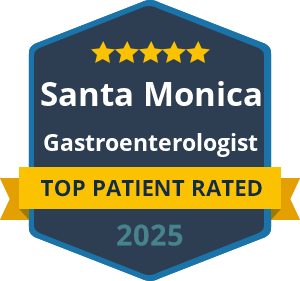
Gastroesophageal reflux disease (GERD), commonly known as acid reflux, is a chronic condition characterized by the backward flow of stomach acid into the esophagus. While occasional heartburn or acid reflux symptoms are common, persistent or uncontrolled GERD can lead to serious complications and significantly impact one’s health and quality of life. Dr. David P. Yamini, MD, specializes in the diagnosis and treatment of GERD, helping patients understand the dangers of uncontrolled acid reflux and providing effective solutions to manage the condition.
Causes and Symptoms of GERD
GERD occurs when the lower esophageal sphincter (LES), a muscular ring that normally prevents stomach acid from flowing back into the esophagus, becomes weakened or relaxed, allowing acid to reflux into the esophagus. This can lead to a range of symptoms, including:
- Heartburn: A burning sensation in the chest, often occurring after eating or lying down.
- Regurgitation: The sensation of acid backing up into the throat or mouth, accompanied by a sour or bitter taste.
- Chest Pain: Discomfort or pain in the chest that can mimic symptoms of a heart attack.
- Difficulty Swallowing: A feeling of food getting stuck in the throat or a sensation of pressure or pain when swallowing.
- Chronic Cough: A persistent cough, particularly at night, that may be triggered by irritation of the esophagus.
Complications of Uncontrolled GERD
While occasional acid reflux symptoms may be manageable, untreated or poorly controlled GERD can lead to serious health complications, including:
- Esophagitis: Chronic exposure to stomach acid can irritate and inflame the lining of the esophagus, leading to a condition known as esophagitis. Symptoms may include difficulty swallowing, chest pain, and bleeding.
- Barrett’s Esophagus: Long-term GERD can cause changes in the cells lining the esophagus, increasing the risk of Barrett’s esophagus. This condition is a precursor to esophageal cancer and requires close monitoring and management.
- Esophageal Strictures: Scar tissue may form in the esophagus due to repeated exposure to stomach acid, leading to narrowing or strictures. This can result in difficulty swallowing and food impaction.
- Respiratory Complications: Acid reflux can trigger or worsen respiratory symptoms such as asthma, chronic cough and recurrent pneumonia.
- Dental Problems: Stomach acid refluxed into the mouth can erode tooth enamel, leading to dental decay, sensitivity and gum disease.
Managing GERD with Dr. David P. Yamini, MD
Dr. David P. Yamini, MD, is a double-board certified gastroenterologist who specializes in the diagnosis and treatment of GERD, offering personalized care and comprehensive solutions to help patients manage their symptoms and reduce the risk of complications. Treatment options may include:
- Lifestyle Modifications: Dr. Yamini works closely with patients to identify and address lifestyle factors that contribute to GERD, such as diet, weight management, smoking cessation, and stress reduction.
- Medications: Over-the-counter and prescription medications, such as proton pump inhibitors (PPIs), H2-receptor antagonists, and antacids, can help reduce stomach acid production and alleviate symptoms of GERD.
- Endoscopic Procedures: In cases of severe or refractory GERD, Dr. Yamini may recommend endoscopic procedures to strengthen the LES and reduce acid reflux.
- Surgical Intervention: For patients who do not respond to conservative treatments, surgical intervention may be considered to reconstruct the LES and prevent acid reflux.
If you are experiencing persistent symptoms of GERD or have been diagnosed with acid reflux disease, it’s essential to seek timely evaluation and treatment from a qualified specialist like Dr. David P. Yamini. With his expertise in the management of GERD, Dr. Yamini can help you understand the dangers of uncontrolled acid reflux and develop a personalized treatment plan to protect your health and well-being. Do not let GERD compromise your quality of life – schedule a consultation with Dr. Yamini today and take the first step towards effective management of your condition. Call our office in Beverly Hills or Santa Monica, CA, to book your appointment.
Posted on behalf of




